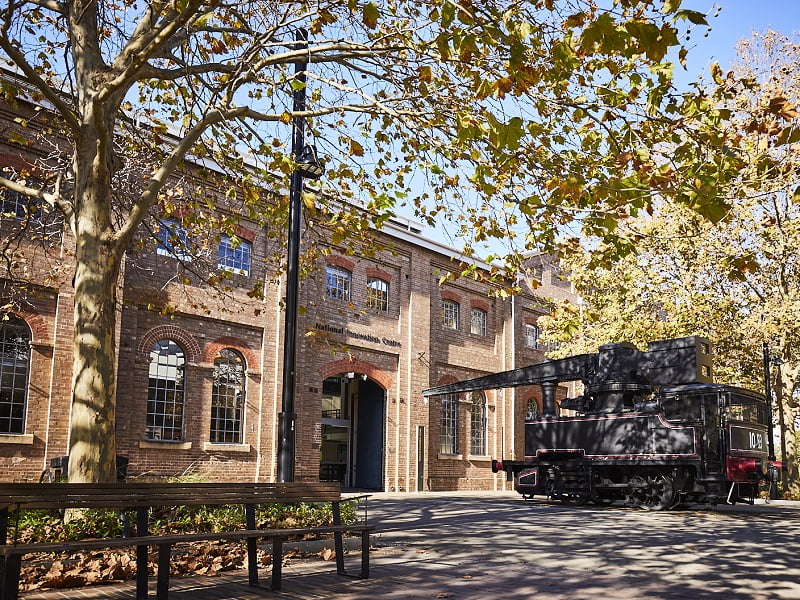The power of deep tech is in “solving the world’s most wicked problems, rather than a problem of convenience”, according to Cicada Innovations chief executive Sally-Ann Williams.
Transformation depends on an immense hunger and willingness to engage deep tech’s game changers.
“You need the policy leaders to be right; you need the community to be hungry for and ready to adopt these technologies; you need industry to be hungry and ready to transform and build in partnership,” Ms Williams said.
Fellow deep tech aficionado and Main Sequence Ventures partner Phil Morle agrees.
“We’re at a pivotal point where the decisions that we make over the next two decades will define our future,” he said.

Collective challenges such as the pandemic, climate change, food sustainability and declining soil health show that “if we can get those settings of patient capital and patient policy right, we create not just a solution that we’re bringing to the world, but create economic opportunity in Australia for many people to participate in,” Ms Williams said.
Favouring systems over siloes to solve global challenges that transcend industry and technology will help shape the direction of deep tech.
This is also the theme for the newly named Cicada x Tech23 event, which showcases 23 standout companies whose deep tech ventures create future scope.
“Cicada’s mission is to support deep tech companies through their entire lifecycle, from ideas to realisation. And Tech23 is an incredible opportunity to spotlight the incredible science and engineering ventures that we have emerging across Australia — and connect them to capital, community, industry and government to support them on their journey,” Ms Williams said.
Staying true to Tech23’s DNA of celebrating radical Australian innovation and deep technological advancements, Cicada (fittingly, a resounding creature mythologised for resurrection and immortality) is moving away from pitches and prizes, Ms Williams said.
Instead, the chosen 23 companies (from a record 130-plus applications; the highest in the event’s 13-year history) will appear in a series of inspirational talks and in-depth panel discussions at Cicada’s Sydney headquarters in a full-day forum on Wednesday, July 26.
In a nutshell, “we’re going to dive deeply into these 23 businesses that we’re showcasing and help people reimagine the future”, she said.
They have been grouped under five categories, aimed at asking questions about how we build the future, while finding systemic solutions to far-reaching problems:
- Ending waste and creating truly circular economies by deploying innovations like synthetic biology, nanotechnology and AI
- The rebuilt environment and how can we create sustainable, smart and biodiverse cities and other living environments that prioritise health, community and the environment
- Shifting the mindset in medicine from cure to prevention, and from treating disease to pre-emptive, holistic health
- Co-designing with nature by designing systems that are guided and powered by the natural world and supercharged by technology that can revolutionise food production, medicine, materials and energy
- Reimagining time by using advances in manufacturing, infrastructure and computing to change how we use and experience the most valuable human resource: time
“In particular, in our ‘ending waste’ area, there’s a company called Xefco that creates an efficient and water-free dyeing solution for fabrics. If that is widely adopted and we can push it into the supply chain, we can eliminate up to 20 per cent of the world’s water pollution and 2.5 per cent of the world’s carbon emissions,” Ms Williams enthused.
In the ‘rebuilt environment’ category, there are two standouts: one is Kapture, which has a storage solution for capturing diesel in CO2.
“In the transition of energy, diesel can still be safely captured but returned into the environment in a way that is potentially useful in our land,” Ms Williams said.
The other, Rux Energy, focuses on hydrogen storage.
“One of the biggest challenges with hydrogen is how to ship it from point A to B in an efficient way that doesn’t require the same-sized container to fuel it to get it there, as it did for what we’re shipping,” Ms Williams said. This involves an optimised storage solution (by using their new materials, you can 10 times the storage of an existing tank).
In ‘co-designing with nature’, she cited an Indigenous-founded business from Far North Queensland, called Rainstick, which adopts First Nations knowledge to explosive effect.
“They have observed a phenomenon that occurs when lightning strikes the ground and how the productivity of Earth actually explodes,” Ms Williams said.
Symbolically and realistically, “a moment of pain brings a moment of regrowth”.
Tapping into 80,000 years of knowledge in tandem with the latest technology to spawn regeneration is the reward for innovative thought meets traditional lore.
Systems also align as deep tech incubator and new custodian of Australia’s longest-running annual deep technology conference, the award-winning Cicada Innovations, celebrates its 23rd anniversary.
One of the event’s sponsors, Main Sequence Ventures, maintains that a willingness to transform the current landscape is key to engaging Australia’s innovators to solve global concerns.
“Cicada x Tech23 shares our mission to celebrate and support Australia’s deep tech innovators who are committed to solving some of the world’s biggest problems — and we look forward to exploring solutions with the 23 companies at this conference and beyond,” Mr Morie said.
To take part in the ground-breaking Cicada x Tech23 event, visit https://events.humanitix.com/cicada-x-tech23-2023
This article was produced by InnovationAus.com in partnership with Cicada Innovations.
Do you know more? Contact James Riley via Email.
